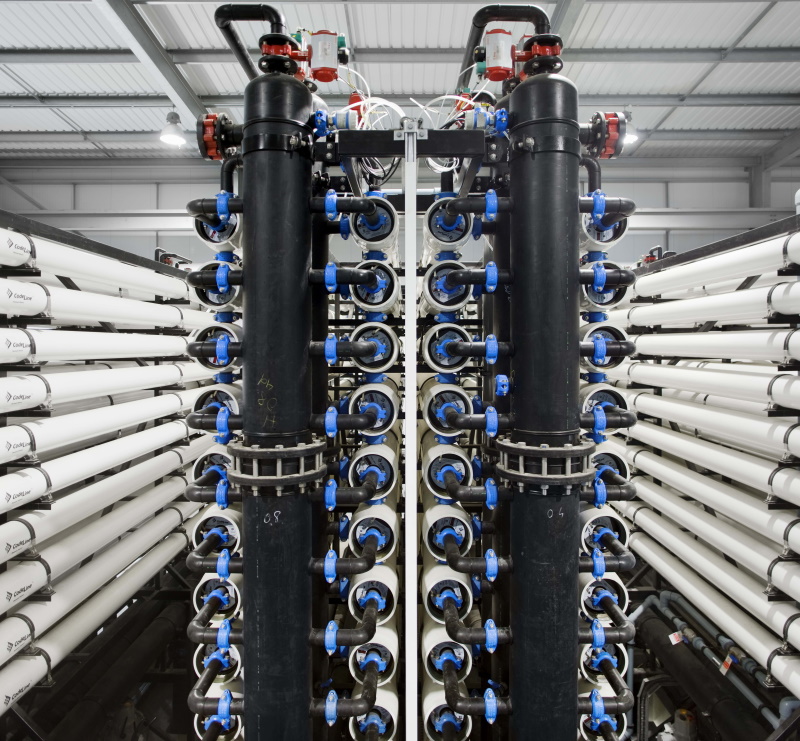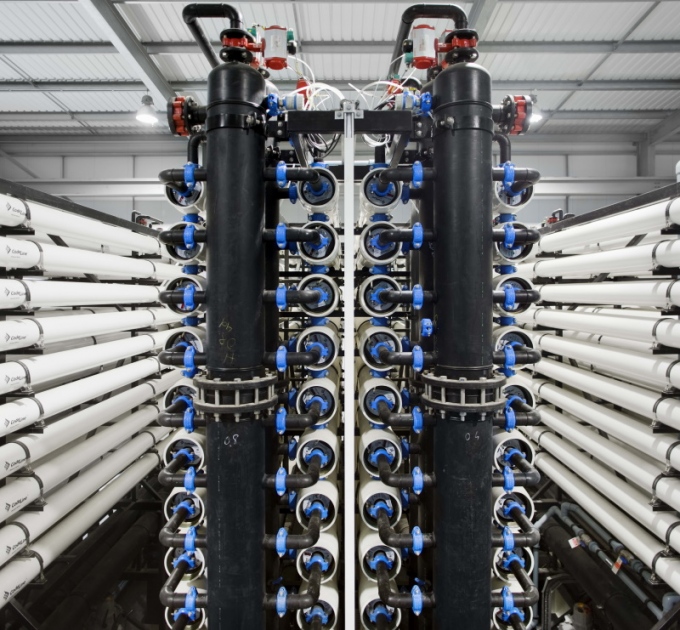
Spokesperson: Julio de la Rosa, ME BD Director, Water solutions, ACCIONA: ACCIONA’s expertise is directly relevant to the Kingdom’s Vision 2030 programs and goals
Eye of Riyadh interview
How will desalination sector help to reach Saudi Vision 2030?
ACCIONA’s expertise is directly relevant to the Kingdom’s Vision 2030 programs and goals. We see ourselves as partners that can enable the Kingdom to realize its vision of creating a vibrant, more diversified and more sustainable economy and society. For example, the seven desalinations and wastewater treatment plants that we are building – and the two desalination plants that we have already completed - will improve the water security of 8.3 million people and make the country more resilient to climate shocks.
We achieved carbon neutrality across all our global operations in 2016 and now our goal is to have a positive, regenerative impact on nature and society. This means that every project we undertake is designed with elements that contribute to the restoration of degraded ecosystems, which protect biodiversity and which improve the wellbeing of communities. These goals are also aligned with the Vision 2030 programs, for example, in projects that promote circular economy concepts such as water recycling and reuse.
We are building, along with our local partners Tawzea, Tamasuk and MGC, three sewage treatment plants for the SWPC in Madinah, Buraydah and Tabuk. These projects are good examples of how we are partnering with local companies to deliver key elements of Saudi Vision 2030. The projects will recycle water from the treatment plants for irrigation, saving water and promoting the circular economy. For these projects, we are building 23km of recycled water collectors for irrigation, with their respective storage tanks and pumping stations.
.jpg)
What is the strategy of ACCIONA for knowledge transfer withing KSA?
Since setting up our first office in Dubai in 2008, ACCIONA has established itself as a leading provider of water, renewable energy and urban infrastructure in the region. We are now a team of 3,500 people throughout the GCC and with our Head Office based in Riyadh under RHQ programme.
Our water business is growing very quickly. At present, we have a portfolio of water projects worth more than $2billion in the GCC. Our expertise spans the entire water cycle, from building desalination and water treatment plants to providing operation and maintenance services and managing entire water networks. Taking all of these into account, we have some 16 large and very large water contracts under execution, including 11 in the KSA. Seven of these have been awarded in the past year.
This success has transformed ACCIONA into the market leader for water solutions in the GCC, for developing, designing, building, operating and maintaining water treatment plants. This is an essential, life-sustaining service in one of the most water-stressed regions of the world, and we are proud to be able to offer our expertise in water management here to our clients.

Which are the upcoming technologies to be implemented within desalination plants to improve efficiency and sustainability?
We are now applying in the plants Internet of the Things and Big Data, both potable and sewage treatment and water services under construction or operation to know what is exactly happening in every single point of the plant or network. After this, we need a quick decision making process in order to take the best solution rapidly with the help of another promising technology: the Artificial Intelligence.
I would also like to mention the implementation of intelligent digital solutions for the water sector. These digital tools help us manage our water treatment plants more efficiently, by optimizing power consumption and other inputs. These digital tools really came into their own during the pandemic, when travel restrictions meant that we were unable to send specialist teams on site to test systems and start production at new water facilities. Because we could not have specialist teams on site, we build a Digital Twin – an exact digital replica – of the Al Khobar desalination plant and carried out most of the tests and start-up procedures remotely.
Thanks to this digital twin, the desalination plant underwent all necessary tests and was able to start production within the planned timescale, despite the restrictions on personal mobility imposed by the pandemic.
Thanks to the innovative technological solutions in the area of water reuse, it is possible to optimize tertiary treatment processes and deliver solutions for the burgeoning demand of water for agricultural uses, urban irrigation, recreational activities, replenishing aquifers, and protecting them from saline intrusion. We are constantly researching technological developments for the reuse of wastewater—one example is biological membrane reactors—to allow for more extensive and sustainable use of purified water.
Driven by innovation, solid waste generated in a wastewater treatment plant can be used as a fertilizer for agriculture. The waste removed from the treatment plants has an important content of organic matter and nutrients (mainly nitrogen and phosphorus) that is of high value for agricultural uses. This would contribute to improving the health of soils that need organic matter as well as to close the natural cycle that connects the city with the countryside.
How will public and private collaboration being improved to jointly develop projects?
Private-sector technology and innovation, for example, can help improve the operational efficiency of providing public services. The public sector, for its part, provides incentives for the private sector to deliver projects on time and within budget. In addition, creating economic diversification makes the country more competitive in facilitating its infrastructure base and boosting associated construction, equipment, support services, and other businesses
We invest in the planet through long-term equity investment in sustainable project concessions using the output from our in-house R&D+Innovation division. A long-term investment can really make a difference.
Unlike other companies in the infrastructure field who either develop or design or build ACCIONA can do all three things and in addition we have the capability to invest as partners in PPP projects.
What is the gender strategy of Acciona for the Kingdom?
The talent, commitment and leadership of people —the heart of ACCIONA— make sustainable development and effectively combating the climate emergency possible. That is the reason why our employees are at the centre of the company's strategy, which is based on diversity, equity and inclusion.
Through the Diversity Committees, in the different businesses and countries, including the KSA, policies and programs are promoted to favor a respectful, diverse, inclusive and efficient work environment. These diversity committees, made up of all groups, generate proposals and plans in the area of diversity and inclusion.
In this context, from ACCIONA, we are in the process of hiring more women among our staff, including in the KSA. Actually, the project Director for Jubail 3B SWRO desalination plant is a woman.
Also, as part of ACCIONA’s commitment with gender equality, ACCIONA sponsors since 2021 the ACCIONA|SAINZ XE Team to race in the Extreme E competition, a new championship that promotes, for the first time, the fight against global warming, sustainable mobility and gender equality. The rules of this championship state that teams must have a 50/50 split of men and women, with the same number of kilometers driven by each team member.
The ACCIONA | Sainz XE Team made its debut in Extreme E last year in Al-Ula, Saudi Arabia.
I would also like to mention that in 2021, the Refinitiv Diversity & Inclusion Index has classified ACCIONA in the 36 position of the best companies worldwide in diversity and social inclusion being the only company of the construction and engineering sector included in this group.



























